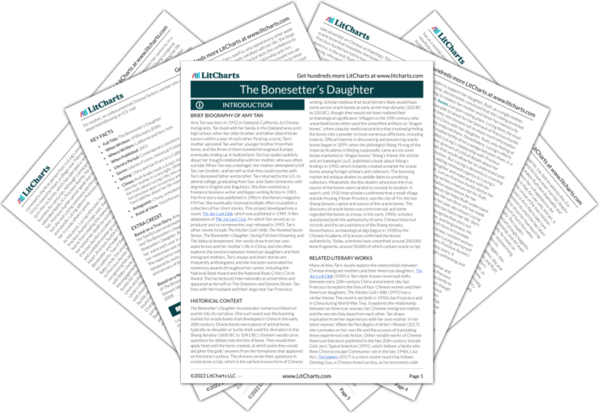GaoLing’s willingness to accept the visa shows that, while she clearly cares about LuLing, she is the less selfless of the two sisters. In contrast, LuLing has the chance to go to the U.S. but selflessly offers the visa to GaoLing instead. Once more, LuLing sees their contrasting fates as evidence of a curse rather than her accommodating nature and willful decision to act in ways that perpetuate her misery. At the same time, though, LuLing’s actions also show her willingness to make sacrifices to help her sister, thus underscoring the fondness and close connection she feels with GaoLing.
